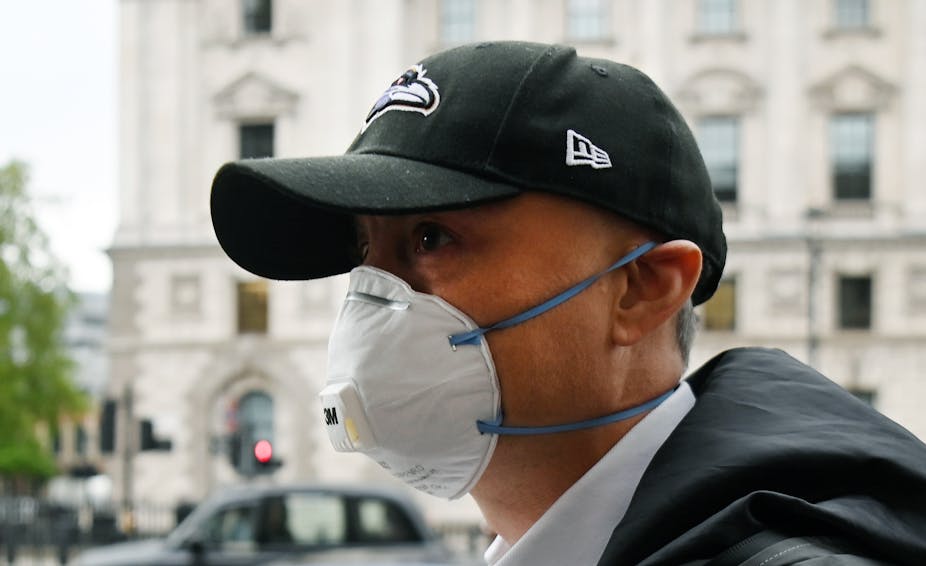In seven hours of testimony to MPs, Dominic Cummings, former ally of Boris Johnson, gave a scathing report on the government’s handling of the pandemic.
He directed much of the blame on Prime Minister Boris Johnson and Health Secretary Matt Hancock. With so much detail emerging on the events of 2020, there were calls for an immediate public inquiry into the government’s COVID-19 response to begin immediately, rather than launching one in spring 2022 as currently planned. Lessons need to be learnt urgently and put into practice as soon as possible, both to improve the UK’s ongoing response to COVID-19 and to avoid similar errors in future emergencies.
Based on the allegations made by Dominic Cummings, five questions in particular have emerged as particularly pressing for inclusion in the inquiry.
1. Was testing deliberately held back?
Of the many accusations Cummings levelled at Matt Hancock, one of the most serious was that he deliberately held back COVID testing despite the World Health Organization’s call in mid-March for countries to “test, test, test”. Cummings said Hancock told those building the test-and-trace system to “down tools on this, do this, hold tests back so I can hit my target”.
Since then, testing has been rolled out on a massive scale, but it must be clarified what opportunities were missed in early March to save lives and whether testing was indeed deliberately held back.
2. What plans were in place prior to the pandemic and were they followed?
Cummings said that on January 25 he asked Hancock what was being done to prepare for an event like the Ebola outbreak. He said Hancock told him they had all the requisite plans and that they would be preforming stress tests. Cummings said those plans were “completely hollow”.
This raises a number of important questions. Was the UK Department of Health’s 2011 Pandemic Influenza Preparedness Strategy implemented and correctly followed? Were the recommendations made after the government’s flu practice operation, Exercise Cygnus – which warned that “the UK’s preparedness and response in terms of its plans, policies and capabilities is currently insufficient to cope with the extreme demands of a severe pandemic” – given sufficient attention and fully implemented?
3. Was herd immunity the prevailing strategy until early March?
Cummings repeated several times in his testimony that natural herd immunity was the basis of the UK government’s initial response strategy for COVID-19. Cummings said the widespread assumption until early March was that containment would not work and that the pandemic had to be managed until herd immunity was reached. A public inquiry needs to clarify if this was indeed the prevailing strategy and, if so, why the evidence from scientists and others pointing out the flaws in the herd immunity strategy were ignored.
4. Why was a China-like lockdown not considered?
According to Cummings, the herd immunity strategy was also pursued because the assumption was that a lockdown like the one in China would not be accepted by the British population. However, some behavioural scientists had written an open letter critical of this assumption, and arguing that policies were required to induce a radical change in behaviour to save lives and avoid catastrophe.

Given the relative successes of countries such as China, South Korea and New Zealand in avoiding both the high death rates and economic disruption of COVID-19 why weren’t these policies given proper consideration?
5. Does the UK have the right structures to manage national security issues?
Cummings painted a picture of the Cabinet Office as totally overstretched and chaotic. He stated that the Civil Contingencies Secretariat in the Cabinet Office in particular did not have the resources, capabilities or data to effectively respond to a crisis of this magnitude. One solution Cummings offered to these conditions was that UK Civil Contingencies must be more “dictatorial”.
However, it could also be argued quite the opposite way – that imposing central control and failing to work with local agencies was one of the main flaws in the UK’s response. So an inquiry needs to examine what strategies were pursued within the Cabinet Office and what resources were available.
Cummings was dismissed as Captain Hindsight by Transport Secretary Grant Shapps, and the prime minister continues to insist that he wants to look forward, not back. But looking back is vital at times like this. With a number of challenges, including the persistence of variants, on the horizon, it is vitally important that errors are corrected and lessons learnt to improve the UK’s ongoing response efforts.

